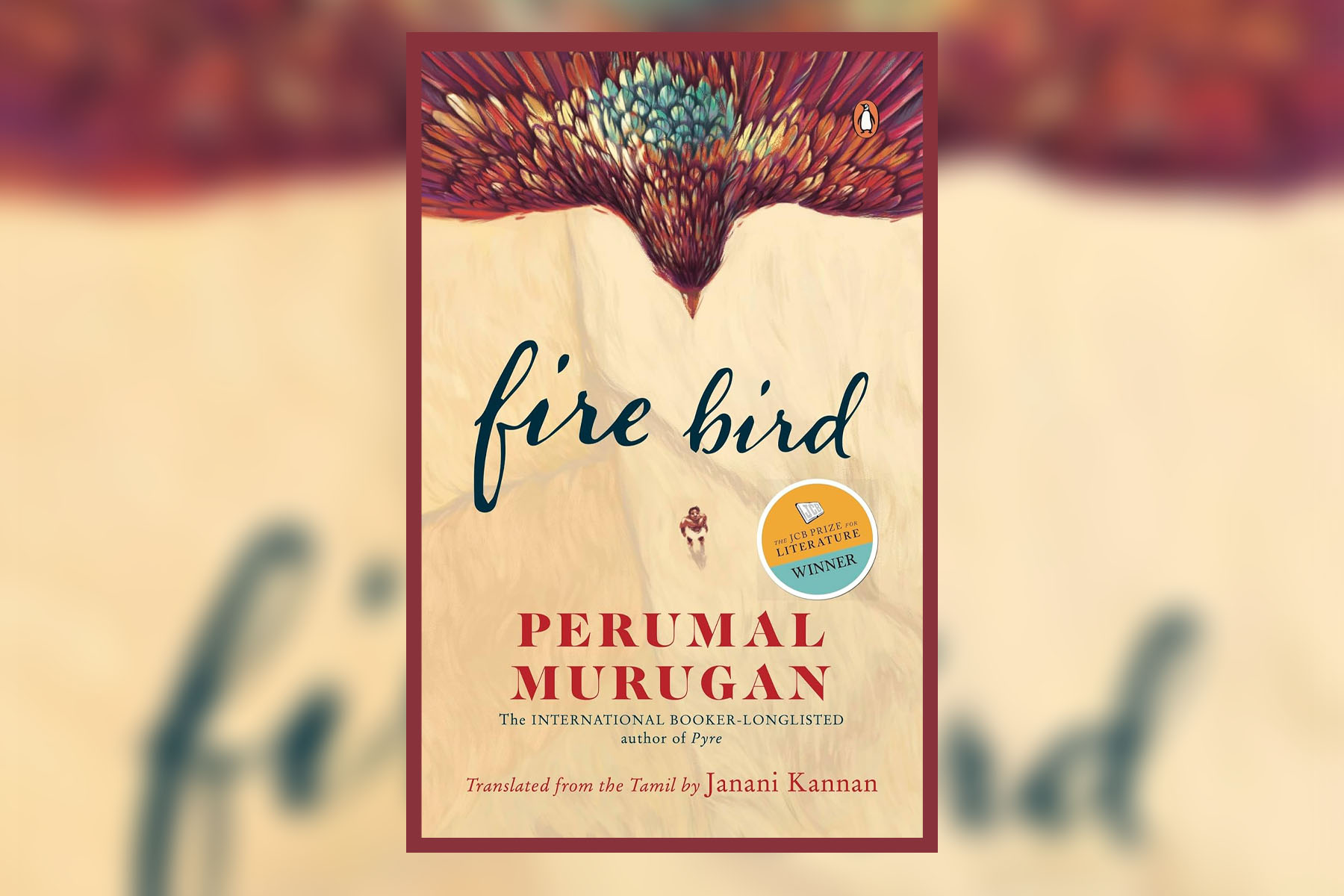
Perumal Murugan’s Fire Bird deals with heavyweight ideas like forced migration, displacement, gender roles, patriarchy, and a change in the family order, Dr Sneha Pathak writes in her review of the JCB Award winning novel.
My introduction to Perumal Murugan came in the year 2018 when his novel Poonachi was shortlisted for the JCB Prize for Literature. What I admired the most about Poonachi was the deceptive simplicity of its storytelling through which Murugan was able to convey way more than what appeared on the surface. His latest novel to be translated in English, Fire Bird, is no exception. Winner of the JCB Prize for Literature in 2023, Fire Bird is a book that reads like a simple tale on its surface, but underneath there’s a lot that is left to be decoded by the reader.
Fire Bird opens with a scene that takes us to the heart of India’s – and more specifically, Tamil Nadu’s – rural heartland and sets the scene for the rest of the story to unfold. We come across two men, Muthannan and Kuppan, as they are trying to help their oxen when they suddenly seem to halt and collapse in the middle of their journey. Where are these characters going to? What’s their journey for? These are the questions that most of the novel is devoted to answering.
We witness the travels of Muthannan, or Muthu, as he travels from place to place in search of a new home, a new land where he can settle with his wife and his children. The youngest of all siblings, he was the dearest of all his elder brothers till suddenly, his parents decide to partition the land and as the youngest, he ends up getting the least profitable share. This, and further humiliation met to his family by the family elders, drives him onto this quest to find a land of his own, a place far off from his erstwhile family. Accompanying him on his travels is his farmhand Kuppan, who stays by his side and cares for him like a close family member would.
The narrative of the novel moves to-and-fro between the past and the present and while initially things are simply hinted at, soon we learn of all that has happened in the past which has forced Muthannan to set out on this journey. But the mention of the past is always peppered with the journey of the present. In one scene, we are with Muthu as he tries to ask the price of land in a new village while in the next, we are back in the past as we witness the injustice being meted out to him and his family. The story also, from time to time, accommodates other tales like those narrated by Kuppan or that of the cheating ‘pithaalakkaaran’. All these tangential anecdotes and tales add to the richness of the narrative and give it a distinct flavour and texture.
But what make the book richer are the themes that lie behind this easy, simple exterior. For Murugan deals with heavyweight ideas like forced migration, displacement, gender roles, patriarchy, and a change in the family order here. One also realises how closely a man is linked to his land, how his whole life, his entire identity can depend upon the possession of land, or on the lack of it. With Muthu’s move to a distant place, Murugan seems to be commenting on the breaking of the joint family structure and the emergence of a nuclear one, while through the behaviour of her husband’s family towards his wife, Peruma, after her brother-in-law attempts to assault her, shows the deep-rooted patriarchal mindset that continues to exist unabashed even today.
Another interesting aspect of the novel is its title. The original title “aalandapatchi”, which refers to a mythical bird, and has been translated as Fire Bird in English is actually used in the novel by Muthu’s mother as an insult to his wife when she goes to her in-laws to complain about her brother-in-law’s harassment. And yet, with respect to the novel, the fire bird seems remniscent more of another legendary bird, the Phoenix, which is believed to have risen from its own ashes. Muthu and his family can perhaps be compared to this mythical bird. They are, after all, making an attempt to survive after everything’s gone. And yet, Murugan is careful not to end the book on a note that is purely one of hope. They might rise again, yes. But as the ending reminds us, one can never be sure that the future will be all golden.
Walk into your nearest bookstore to read them or Whatsapp +91.8800200280 to order. Buy the book(s) and the coffee’s on us.
